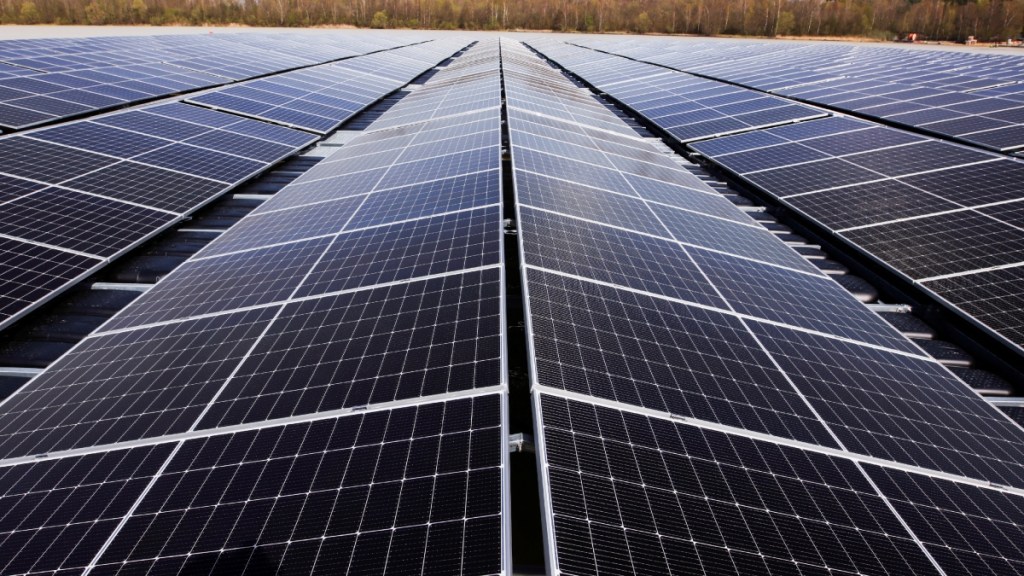The Solar Alliance and Nuru, a solar power company in Congo, are collaborating on a significant project that aims to bring about positive change. Together, they aspire to generate 15 megawatts of solar power in the Eastern Congo, intending to benefit a substantial number of people.
Dr Ajay Mathur, the esteemed leader of the Solar Alliance, expresses genuine enthusiasm for Nuru’s innovative plan. In a country where only 20% of the population has access to energy, Nuru’s approach to renewable energy holds tremendous promise. Their strategy involves setting up mini power systems across three provinces, with the ultimate goal of providing electricity to approximately 5 million people. The Solar Alliance plays a crucial role by providing financial support akin to insurance, ensuring the success and viability of this impactful project.
Furthermore, the Solar Alliance is forging a partnership with the World Bank to bolster Nuru’s efforts. This collaboration, as announced by Dr Mathur, aims to extend solar power to regions facing acute energy needs, particularly in countries with limited electricity access. The collaboration, revealed during the G20-Clean Energy Ministerial meeting, is anticipated to mitigate risks associated with such ventures and significantly contribute to unlocking the vast potential of investments in Africa.
Jonathan Shaw, the CEO and Co-Founder of Nuru, acknowledges the critical and catalytic role the Solar Alliance plays in ensuring the success of complex projects like theirs, emphasizing the importance of maintaining affordable pricing for their clients.
Nuru’s ambitious plan doesn’t stop here; they envision deploying an additional 39 megawatts in subsequent phases. By 2025, they aim to provide power to up to 5 million people in a country where a mere 19% of the population currently has access to electricity. The innovative approach by Nuru, supported by the Solar Alliance’s Global Solar Facility, not only addresses the immediate need for energy but also holds the potential to foster climate resilience and sustainable development.
Nuru’s utility-scale solar metrogrids, infused with cutting-edge technology and services, are designed to deliver reliable and renewable energy 24/7 to urban communities in the DRC. Despite the existing challenges in electrification, Nuru’s metro grids are poised to make a substantial impact on economic activity and market demand, improving lives and driving positive change.
The Global Solar Facility (GSF) emerges as a key player in catalyzing solar investments across Africa. With an initial funding of US$35 million from the Solar Alliance, GSF aims to stimulate investments in solar power projects, particularly in underserved segments and geographies. R K Singh, the Minister of Power and New & Renewable Energy in the Government of India, highlighted the GSF’s objective to raise US$100 million, providing security to investments and accelerating the transition to solar energy in Africa.
Dr Mathur emphasizes the critical role of the GSF as a mechanism to urgently address universal energy access and facilitate a clean energy transition. He underscores the global need for a substantial investment of US$12.5 trillion in renewable energy and US$23 billion in off-grid solar by 2030. The GSF, with its vision and mission, strives to contribute significantly to meeting these pressing energy and environmental challenges.
Looking ahead, after making a transformative impact in Africa, the GSF envisions expanding its reach to regions like Asia, Latin America, and the Middle East. The plan involves tailoring Regional Facilities to meet specific requirements, channelling investments into innovative technologies, supporting startups, and exploring emerging sectors in solar energy. The ultimate goal is to enhance solar energy efficiency on a global scale, ensuring a sustainable and resilient energy future for communities worldwide.


